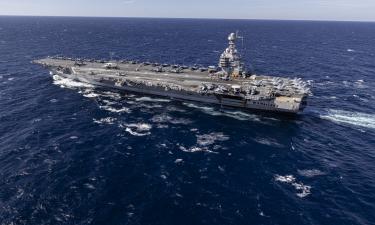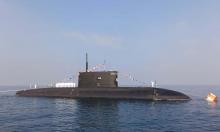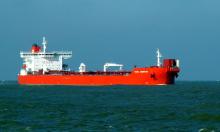Shiite cleric al-Sadr reappears to boost U.S. troops leave Iraq
American troops must leave Iraq said radical Shiite cleric Muqtada al-Sadr in his fiery anti-American sermon to thousands of followers on Friday.
Al-Sadr had gone into hiding in Iran four months ago at the start of the U.S.-led Baghdad security crackdown. It was not immediately clear why he chose to return now to his base in the Shiite holy city of Najaf.
However, he could be trying to take advantage of the absence of a major rival, Supreme Islamic Council of Iraq leader Abdul-Aziz al-Hakim, who was recently diagnosed with lung cancer and went to Iran for treatment.
The U.S. military also announced Friday that six U.S. soldiers were killed in a series of attacks across Iraq in recent days. The deaths put May on pace to be one of the deadliest months for U.S. forces here in years.
Al-Sadr traveled in a long motorcade from Najaf to the adjacent holy city of Kufa on Friday morning to deliver his sermon before 6,000 worshippers.
"No, no for Satan. No, no for America. No, no for the occupation. No, no for Israel," he chanted in a call and response with the audience at the start of his speech.
He repeated his long-standing call for U.S. forces to leave Iraq.
"We demand the withdrawal of the occupation forces, or the creation of a timetable for such a withdrawal," he said. "I call upon the Iraqi government not to extend the occupation even for a single day."
He also condemned fighting between his Mahdi Army militia and Iraqi security forces, saying it "served the interests of the occupiers." Instead, he said the militia should turn to peaceful protests, such as demonstrations and sit-ins, he said.
As part of his effort to recast himself as a nationalist - instead of a radical with a narrow Shiite agenda - the 33-year-old leader called on Sunnis to join with him in the fight against the U.S. troop presence here. He also criticized the government's inability to provide reliable services to the people.
Al-Sadr is believed to be honing plans to consolidate political gains and foster ties with Iran.
His Mahdi Army fought U.S. troops to a virtual standstill in 2004, but to avoid renewed confrontation he ordered his militants off the streets when the U.S. began its security crackdown in the Baghdad area 14 weeks.
His associates say his strategy is based partly on a belief that Washington will soon start reducing troop strength, leaving behind a hole in Iraq's security and political power structure that he can fill.
Al-Sadr also believes that Shiite Prime Minister Nouri al-Maliki's government may soon collapse under its failure to improve security, services and the economy, al-Sadr's aides say. A political reshuffle would give the Sadrist movement, with its 30 seats in the 275-member parliament, an opportunity to become a major player.
In a move that could hasten the collapse, al-Sadr pulled his supporters out of al-Maliki's government last month over the prime minister's refusal to call for a timetable for a U.S. withdrawal.
Meanwhile, three U.S. soldiers were killed in roadside bombings in the capitaland the surrounding areas, the military said Friday. Two others were killed in explosions north of Baghdad, and a sixth soldier was hit by gunfire in the volatile Diyala province, the military said.
The killings raised the American death toll for the month to at least 88. Last month, 104 U.S. troops were killed in Iraq.
Military officials have warned that U.S. casualties were likely to rise as more troops deployed to Iraq and the military pushed ahead with its Baghdad security crackdown.
"As we are conducting more operations, we are going into areas we haven't gone into in force before. We have more people on the ground, this leads to an opportunity for more contact, more conflict, more clashes," said Lt. Col. Christopher Garver, a U.S. military spokesman. "This is a tough fight. We are in a war."
Iraqi troops and soldiers have also been targeted by insurgents here, who accuse them of collaborating with U.S. forces.
Gunmen in a speeding car shot and killed a police officer as he was leaving his house in the Shiite-dominated al-Wihda district, 32 kilometers (20 miles) south of Baghdad on Friday morning, police said.
In other violence, a roadside bomb exploded at the entrance to the al-Khadra bridge in western Baghdad, causing no injuries but damaging the span, police said. The blast was the latest attack on Baghdad's bridges by insurgents.
On Thursday, a bomb hidden in a parked car struck the funeral procession of a Sunni tribal leader who was gunned down earlier in the day, killing at least 26 mourners as al-Qaida appeared to turn up its campaign against its opponents.
The attack in Fallujah, 40 miles (64.4 kilometers) west of Baghdad, targeted mourners for Alaa Zuwaid, a 60-year-old restaurant owner who was part of an alliance of anti al-Qaida tribal leaders. Police and medical officials said 45 other people were wounded in the bombing.
In all, 87 people were killed or found dead in sectarian violence across Iraq on Thursday.
In Washington, the Democratic-controlled Congress grudgingly approved fresh billions for the Iraq war, minus the troop withdrawal timeline that drew President George W. Bush's earlier veto.
Bush warned that August could prove to be a bloody month for U.S. troops and said, "The Iraqi government needs to show real progress in return for America's continued support and sacrifice."
The legislation includes nearly $95 billion (EUR70.6 billion) to pay for the wars in Iraq and Afghanistan through Sept. 30. Democrats also abandoned their attempts to require the Pentagon to adhere to troop training, readiness and rest requirements unless Bush waived them.
The bill establishes a series of goals for the Iraqi government to meet as it strives to build a democratic country able to defend its own borders. Continued U.S. reconstruction aid would be conditioned on progress toward the so-called benchmarks, although Bush retains the authority to order that the funds be spent regardless of how the Baghdad government performs.
Subscribe to Pravda.Ru Telegram channel, Facebook, RSS!




